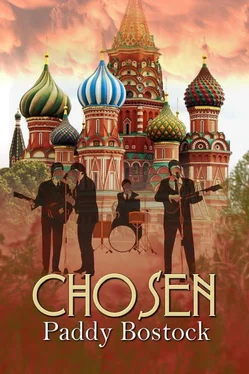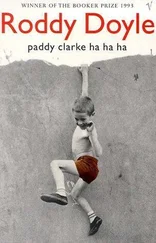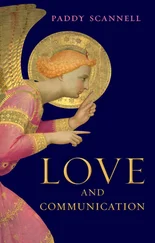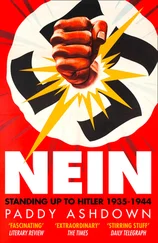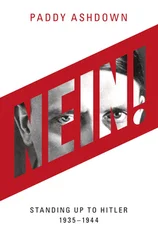“Point taken, Double O Seventeen. So what we are about to toss onto the pitch here is the bombshell image of a dead/undead person and hope that will shake things up.”
“Couldn’t have put it better myself, ma’am.”
“Just one last thing though. How old was Lennon when he was shot?”
“Forty.”
“Which means he’d be in his late seventies by now. Bit old for a rock star, isn’t it?”
“Some of them are still around and gigging, ma’am.”
“And what age is Jeremy Crawford?”
“Mid-forties, perhaps.”
“So you’ll dress him up as a pensioner?”
Maurice laughed. “Jeremy will only be the subject of a computer generated image, an image I can manipulate to suit any taste. You’ll just need to trust my eye to find the one that works best.”
Dame Muriel sighed for a bit, then said, “Okay, Double O Seventeen. Keeping all my fingers and toes crossed, I shall sign off on this. But it better bloody well work .”
“I can promise you nothing but my best, ma’am.”
“Good enough for me. And remember, schtum is the name of the game where Phoebe is concerned.”
“I wouldn’t have it any other way. And thank you, ma’am,” said Maurice, levering himself up from his chair and heading out of the MI6 HQ office, downstairs, and then out of the Vauxhall Cross building for a contemplative stroll along the banks of the Thames. Along the way he sang to himself extracts from “All You Need Is Love,” getting stuck on the line about how there was nothing he could sing that couldn’t be sung.
During the following three months Maurice, Barry, and The Reconstructed Beatles worked tirelessly at perfecting the precise image for the final launch across the Internet. The key rehearsal work on the songs—body language and so on—was done on weekdays at the Shepherd’s Hut, after which at weekends Maurice would motor back to Tooting to upload the footage he’d taken into his computers, match them against recordings of the real Beatles, then fiddle into the wee small hours until his eyes failed and his brain hurt. It was a task he loved however. In some strange way he almost felt himself reincarnated as Brian Epstein, the original Beatles maker.
Barry, Jeremy/John, Julie/Paul, Maggie/George, and Dennis/Ringo were having the best time of their lives too. Okay, they’d all abandoned their pasts but none had any particular future in mind. Now they had one: to bring a little light into a darkening world. Not that they truly believed it would effect radical change, but still the idea was a lot more fun than working in a bank or a police station. Each Sunday evening when the Morris Minor Traveller sighed to a halt outside the Shepherd’s Hut, they would be clustered on the doorstep hungry for the latest Beatle computer imagery Maurice had manipulated. Would it be the early tight-fitting smart suits and fresh-faced grins again or had they moved on to the Sergeant Pepper-type moustache stage yet? Or, in full denial of fresh-facedness and fancy dress, would they sport the shoulder-length hair and beards of the pre-split up period? It was all very tantalising.
Julie was still longing to tell her dad Steve what she was up to but Jeremy still wouldn’t let her.
“Total top secret, luv,” he told her in the Lennon-esque Scouse he’d been practising so hard it had become part of him. “Stanislavski eat your heart out,” he was fond of saying.
“I wouldn’t tell him every thing,” Julie argued in the Paul tones she’d adopted, which wasn’t hard seeing as she’d been born within a mile of the Liver Building. “Just the part about us making a new tribute band. Dad loves The Bootleg Beatles. Goes to all their gigs. He’d be sooo proud of me.”
“But this is news he can’t know. Top secret like Maurice told us. Last I heard you’d told your dad you were away on a all-expenses-paid bank business trip to Kathman-fuckin’-du.”
“First time ever I lied to Dad. He was the one who told me lies would always catch up with me in the end. Have a fit if he knew, he would.”
“Well, there’re lies you tell for your own good, then there are those you tell for other people’s, right?”
“True enough.”
“And Steve must know the phone and Internet connections in Kathmandu aren’t the greatest. Also what the fuck would you be doing joining a Beatles tribute band in Katmandu anyway?”
Just like the old John, Jeremy sprinkled his sentences liberally with “fuck” after watching a clip of “Working Class Hero,” the first time he’d ever heard the expletive used in a song. Now it was across the media all the time, even on the BBC, but back in 1970 it must have been pretty revolutionary. Sometimes Julie used it too, just for fun. Mind you, as she remembered from the time before she left Liverpool, in that city it was used pretty much as punctuation, although more by the lads than the girls.
“Fair dos,” she finally agreed. Then she told Jeremy/John to kiss her and he obliged with smackeroos on both cheeks.
The rest of the team had no trouble obeying Maurice’s omertà injunction though, mainly because they had no loved ones to tell of their exploits. Maggie was too old to have parents any more, Dennis was a foundling, and neither of them had spouses let alone children, so no complications on that front. Jeremy of course did have family but the last thing he wanted was for any of them to know what he was up to. Overriding all of that, however, was the bliss of having ditched their previous existences to become anything else they might fancy, and what better, pro tem at least, than to become a computer-reconstructed Beatle with an ideological purpose? Nothing they could think of off hand. Plus they were intrigued by Maurice’s insights into the nebulous world of counter espionage and thrilled to feel they could become a part of it.
That left Barry, who was also unmarried, childless, and too old to have parents. And he hadn’t been given a Beatle role to lose himself in because there weren’t five Beatles. But Barry didn’t care. He’d stopped caring about himself more years ago than he could remember. Gardener was fine with him, by which term he meant anything he could help to grow. Until recently that had meant tending the plants of the earth but if, as had been his happy experience since rescuing Jeremy and Pete from their barn, it could also be interpreted to mean helping people flourish, that was fine with him. That’s what he’d hoped to achieve at Oxford until he deconstructed the fissures in the dreaming spires.
It was Jeremy who asked him about such matters one late night/early morning Saturday when everybody else was in bed.
“I hope you don’t regret bringing me here,” he said. “And drawing all the other guys in my wake. There you were peacefully cultivating your garden, and now all this .”
Barry smiled. “How’s your French, Jeremy?”
“Poor going on minimal.”
“But you may remember Édith Piaf?”
“Vaguely.”
“Well, this is what she had to say about regret. I’m sure you’ll catch the gist.”
And then, in the best Piaf imitation he could muster, Barry sang: “‘ Non, rien de rien, non, je ne regrette rien. Ni le bien qu’on m’a fait, ni le mal, tout ça m’est bien égal .’”
“At my stage in life there’s little point in looking back in regret,” he explained. “What’s done is done and cannot be undone. Some parts of it were tolerably good some were rubbish, but no good fretting over spilt milk, eh? As Édith says, it’s all the same to me.”
“Sounds a little fatalistic,” said Jeremy.
“It does, but it is also wise because it allows the mind to stay open to whatever may befall us, and deal with it. To see clearly when the rain has gone and welcome a bright sunshiny day when one dawns.”
Читать дальше
